Fruits and Vegetables
Food list
-
Water leaf
-
Bitter leaf
-
Cauliflower
-
Garden Egg Leaf
-
Fluted Pumpkin leaf
-
Wild lettuce
-
African Spinach
-
Lagos spinach
-
Asparagus
-
Guava
-
Avocado
-
Apricot
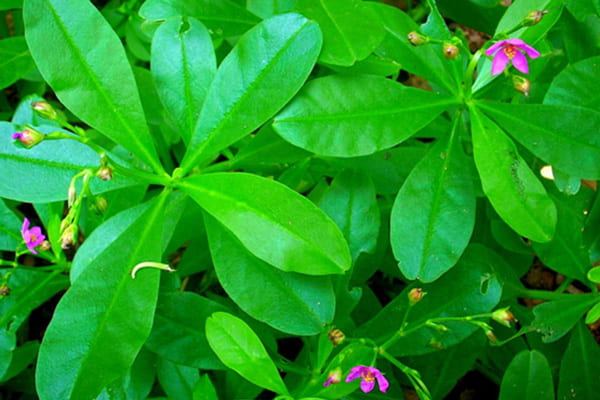
Other names (local names):
Efo Gbure (Yoruba), Mgbolodi (Igbo), Ebe dondon (Edo), Alenyruwa (Hausa)
Origin:
Water leaf is a herbaceous perennial plant that is native to Mexico, the Caribbean, West Africa, Central America, and South America. It is widely grown in tropical regions as a leaf vegetable. The plant grows erect. It bears small, pink flowers and broad, fleshy leaves. It is one of the most important leaves vegetables in Nigeria, used for preparing melon soup or combination with other vegetables for soups.
Nutritional value and benefits:
S/N | Nutritional component | Value in 100 gram/ (100 grams of DV) |
1. | Calories | 25 kcl |
2. | Proteins | 2.4g |
3. | Carbohydrates | 4.4g |
4. | Fiber | 1.0g |
5. | Fats | 0.4g |
Source: https://www.webmd.com/diet/health-benefits-waterleaf
More information:
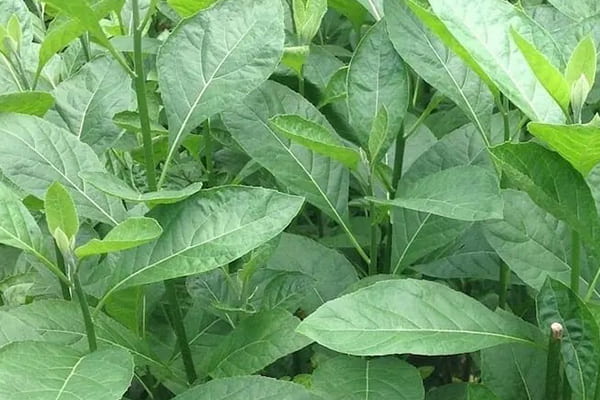
Other names (local names):
Ewuro (in Yoruba), Onugbu (in Igbo), Chusar-doki or Shuwaka (in Hausa), Congo Bololo (D.R Congo)
Origin: It is an indigenous Africa plant, native to western and eastern parts of Africa.
Nutritional value and benefits:
S/N | Nutritional component | Value in 100 gram/ (100 grams of DV) |
1. | Proteins | 5.2g |
2. | Carbohydrates | 10g |
3. | Fats | 0.4g |
4. | Water | 82.0g |
Source: https://www.idosi.org/gv/gv19(3)17/4.pdf
More information:
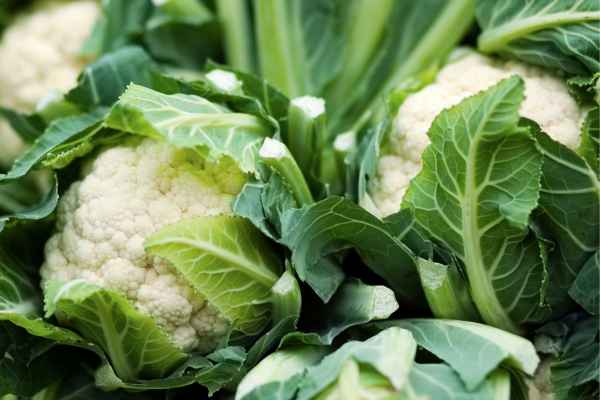
Other names (local names):
Origin:
Cauliflower originated from the Northeast Mediterranean. It is one of the several vegetables grown as an annual plant that reproduces by seed. Only the head is eaten. The edible white flesh is sometimes called curd. Cauliflower is grown in parts of Africa, including South Africa and Egypt.
Nutritional value and benefits:
S/N | Nutritional component | Value in 107 gram/ (1 cup) |
1. | Water | 92g |
2. | Proteins | 1.9g |
3. | Carbohydrates | 5g |
4. | Fiber | 2g |
5. | Fats | 0.28g |
Source: https://www.healthline.com/nutrition/benefits-of-cauliflower#TOC_TITLE_HDR_8
More information:
https://www.medicalnewstoday.com/articles/282844
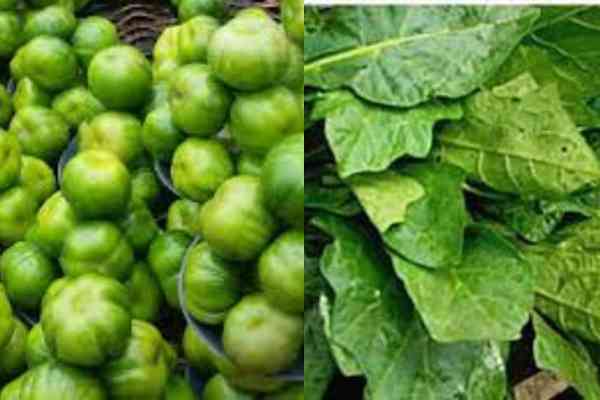
Other names (local names):
African eggplant leaves, Akwukwo Anyara (Igbo), Efo Igbo or Efo Gbagba in (Yoruba), and Ganyen Gauta (Hausa)
Origin:
The leaf originates from the tropical, humid zones of Central Africa. The Garden Egg vegetable is cultivated for both the leaf and fruit. The leaf is also local to the West African region, and found in large quantities in Africa.
Nutritional value and benefits:
S/N | Nutritional component | Value in 100 gram/ |
1. | Calories | 32.39 kcl |
2. | Proteins | 4.38g |
3. | Carbohydrates | 2.06g |
4. | Fats | 0.51g |
Source: https://www.fitnigerian.com/nutrition-facts/egg-plant-leaf/
More information:
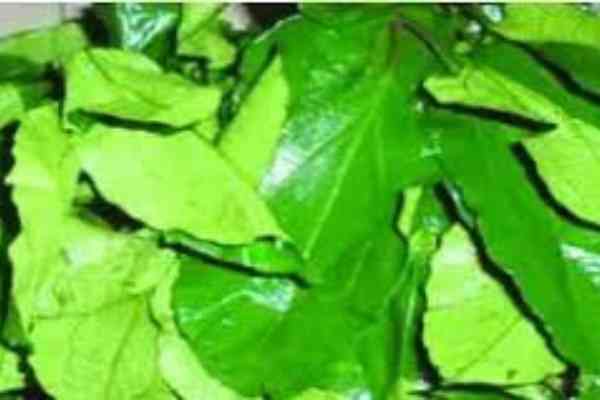
Other names (local names):
Though the Igbo name, the leaf is commonly called ‘Ugu’ in Nigeria.
Origin:
Fluted pumpkin is grown in West Africa for its leaf vegetable and edible seed. It is widely found in Nigeria.
Nutritional value and benefits:
S/N | Nutritional component | Value in 90 gram/ |
1. | Calories | 42 kcl |
2. | Proteins | 3g |
3. | Carbohydrates | 7g |
4. | Fats | 1.6g |
Sources: https://dobbyssignature.com/ugu-fluted-pumpkin-leaf-nutrition-health-benefits/#google_vignette
More information:
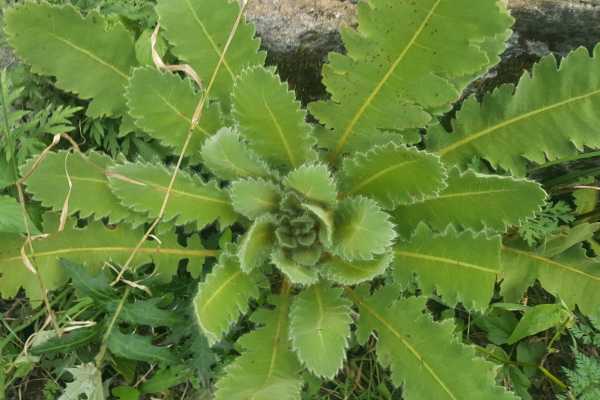
Other names (local names):
Bitter lettuce, Efo-Yarin, Odundun-Odo in Yoruba; Namijin dayii, Nomen barewa, NonanBarya in Hausa
Origin:
It has origin from Asia-Tropical, Europe, Africa, North and South America.
Nutritional value and benefits:
S/N | Nutritional component | Value in 100 gram/ |
1. | Calories | 17 kcl |
2. | Proteins | 1.6g |
3. | Carbohydrates | 1.0g |
4. | Fats | 0.2g |
Sources: https://www.fankal.com/en/foods/183-wild-lettuce.html
More information:
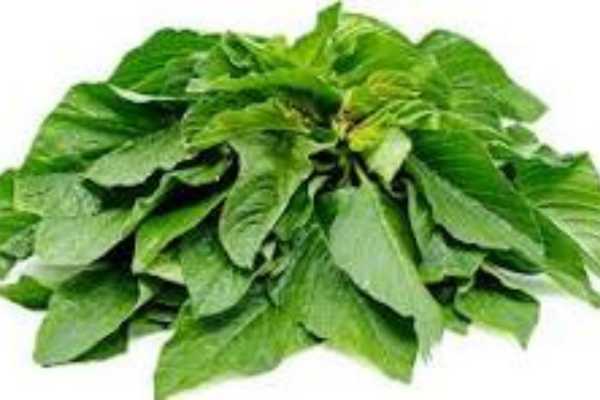
Other names (local names):
Efo Tete (Yoruba), Morogo
Origin:
It is found throughout Southern Africa and harvested for human consumption. History has it that it reached West Africa from Asia and it is now found in all parts of Tropical Africa.
Nutritional value and benefits:
S/N | Nutritional component | Value in 100 gram/ |
1. | Calories | 23 kcl |
2. | Proteins | 2.9g |
3. | Carbohydrates | 3.6g |
4. | Fats | 0.4g |
Sources:https://www.healthline.com/nutrition/foods/spinach#nutrients
More information:
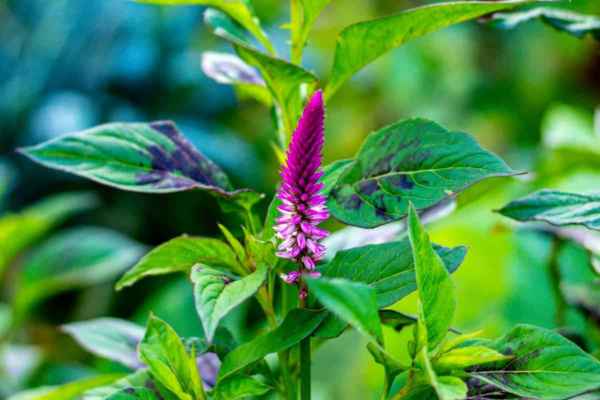
Other names (local names):
Sok0yokoto, Efo Shoko (Yoruba), Nigerian spinach
Origin:
It is believed to be native to Africa, particularly west Africa and grows easily in climates with suitable soil moisture.
Nutritional value and benefits:
S/N | Nutritional component | Value in 100 gram/ |
1. | Calories | kcl |
2. | Proteins | g |
3. | Carbohydrates | g |
4. | Fats | g |
Sources:
More information:
https://poppyswildkitchen.com/lagos-spinach-celosia-argentea/
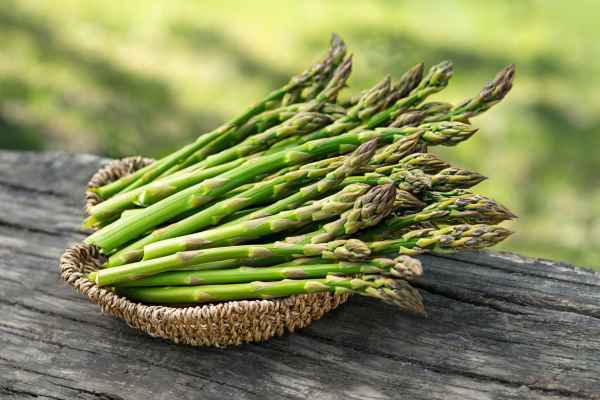
Other names (local names):
Shekan Bera (Hausa), Aluki (Yoruba), Garden asparagus, sparrow grass (folk name)
Origin:
Asparagus is a perennial flowering plant species in the genus Asparagus. The vegetable has about 300 species native from western coasts of Europe to southern Africa.
Nutritional value and benefits:
S/N | Nutritional component | Value in 100 gram |
1. | Calories | 20 kcl |
2. | Proteins | 2.2g |
3. | Carbohydrates | 3.9g |
4. | Fats | 0.1g |
Sources: https://fdc.nal.usda.gov/fdc-app.html#/food-details/168389/nutrients
More information:
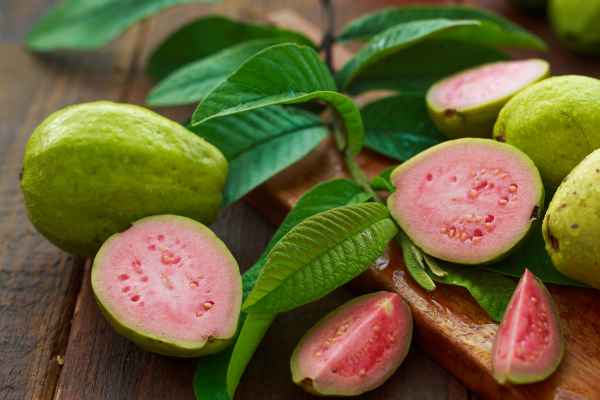
Other names (local names):
Giloba (Yoruba), Goba (Hausa), Uguoba (Igbo), Awofa (Ibibio)
Origin:
Guava is a fruit native to Central and South America. The fruit is commonly eaten fresh or made into beverages, jams, and other foods. Various parts of the plant, including the leaf and the fruit, are used as medicine. People use guava leaf for stomach and intestinal conditions, pain, diabetes, and wound healing.
Nutritional value and benefits:
S/N | Nutritional component | Value in 100 grams |
1. | Calories | 68 |
2. | Carbohydrates | 14.32g |
3. | Fat | 0.95g |
4. | Protein | 2.55g |
5. | Fibre | 5.4g |
Sources: https://fdc.nal.usda.gov/fdc-app.html#/food-details/168389/nutrients
More information:
https://pharmeasy.in/blog/guava-fruit-benefits-amazing-uses-of-guava-leaves/
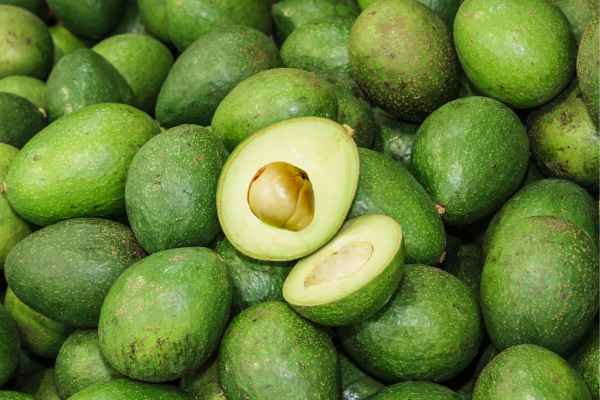
Other names (local names):
Ube bekee (Igbo), Eben Mbakara (Ibibio), Piya Oyibo (Yoruba)
Origin:
The Avocado is native to America; it is sometimes called alligator pear or avocado pear. Avocado trees are partly self-pollinating, and are often propagated through grafting to maintain consistent fruit output. The fruit of domestic varieties have smooth, buttery, golden-green flesh when ripe. Depending on the cultivar, avocados have green, brown, purple, or black skin, and may be pear-shaped, egg-shaped, or spherical. The nutrient density and extremely high fat content of avocado flesh are useful for a variety of cuisines and are often eaten to enrich vegetarian diets.
Nutritional value and benefits:
S/N | Nutritional component | Value in 100 grams/100% of DV |
1. | Water (Raw avocado) | 73% |
2. | Carbohydrates | 8.5% |
3. | Fat | 15% |
4. | Protein | 2% |
5. | Calories | 160 kcl |
Source: https://www.medicalnewstoday.com/articles/318620
More information:

Other names (local names):
Eso yelow (Yoruba)
Origin:
Apricot originated from China. The fruit is a drupe similar to a small peach, from yellow to orange, and its surface can be smooth or velvety with very short hairs. The flesh is usually succulent but dry in some species. Its taste can range from sweet to tart.
Nutritional value and benefits:
S/N | Nutritional component | Value in 100 grams |
1. | Energy | 48 kcal |
2. | Carbohydrates | 11.1g |
3. | Fat | 0.39g |
4. | Protein | 1.4g |
Source: https://fdc.nal.usda.gov/fdc-app.html#/food-details/171697/nutrients
More information:
https://wikifarmer.com/nutrition-value-health-benefits-uses-and-interesting-facts-about-apricot/

